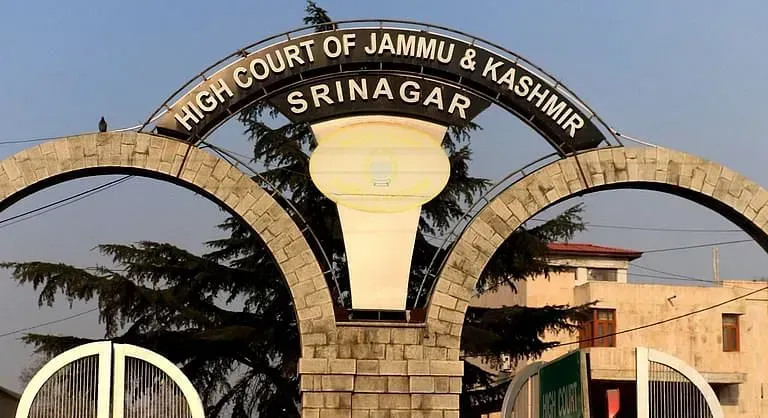In a crucial judgment, the Jammu and Kashmir High Court stressed the importance of ensuring procedural integrity in legal proceedings, warning that even minor errors or lapses in following due process can have significant consequences on the outcome of a case. The Court’s observations came in the context of a matter where procedural irregularities were found to have affected the legal proceedings, which ultimately led to a challenge of the trial court’s decisions. The ruling serves as a reminder to all courts that vigilance is required to prevent such errors that could potentially undo the entire legal process.
Facts of the Case
The case before the Jammu and Kashmir High Court involved the challenge to a legal proceeding due to procedural errors that were allegedly committed during the trial. In this case, the petitioner contended that the trial court had failed to follow the appropriate legal procedure in conducting the proceedings, which had resulted in an unfair trial. The errors pointed out by the petitioner included the failure to follow mandatory legal steps, misapplication of the law, and the improper admission of evidence, among other things.
The petitioner argued that the failure of the trial court to ensure compliance with procedural requirements had jeopardized the fairness of the proceedings. Specifically, the case dealt with the improper handling of evidence and the failure to follow rules relating to the presentation and cross-examination of witnesses. The petitioner claimed that these procedural lapses had a direct bearing on the outcome of the case, rendering the legal process invalid.
Court's Observations on Procedural Vigilance
The Jammu and Kashmir High Court, in its ruling, emphasized that the integrity of the judicial process is dependent not only on the merits of the case but also on strict adherence to procedural rules. The Court observed that procedural errors, even if unintentional, can undermine the fairness of legal proceedings and may lead to irreversible consequences, such as wrongful convictions or unjust acquittals.
The Court further noted that the proper application of procedure is a cornerstone of justice, as it ensures that the parties involved are treated fairly and equally. Whether it concerns the filing of documents, the examination of witnesses, or the presentation of evidence, every step in the legal process must follow established norms to uphold the rule of law. In this case, the Court found that the trial court had not been sufficiently vigilant in ensuring procedural compliance, which, in turn, affected the fairness of the proceedings.
Impact of Procedural Errors on Legal Outcomes
In its judgment, the High Court stressed that the failure to observe procedural safeguards can distort the truth-seeking process of a trial. When courts neglect to follow established procedures, it may not only violate the rights of the parties involved but also erode the public’s confidence in the judicial system. The Court made it clear that any failure to adhere to procedural norms could lead to an unjust outcome, either by denying justice to the victim or by causing undue harm to the accused.
The judgment highlighted that courts must be particularly cautious in criminal cases where procedural errors can lead to a miscarriage of justice. For instance, improper admission of evidence, failure to grant adequate opportunities for cross-examination, or not following prescribed rules regarding the examination of witnesses, can all result in an unfair trial. Such errors can affect the credibility of evidence, and the ultimate verdict may not reflect the true facts of the case.
The Role of Vigilance in Safeguarding Justice
The High Court emphasized the need for courts to be vigilant in safeguarding the integrity of proceedings. This includes being alert to potential procedural errors and ensuring that all parties, whether the prosecution or the defense, have an equal opportunity to present their case. The Court underscored the importance of courts proactively checking compliance with procedural rules at every stage of a trial, from the filing of the charge sheet to the final judgment.
The Court also called for a more proactive role from trial judges, who must ensure that the necessary procedural steps are followed rigorously to prevent errors from creeping into the process. This vigilance is particularly important in cases that involve serious charges or have long-term consequences for the parties involved. The Court noted that failure to maintain procedural discipline would result in the weakening of the judicial system’s credibility and could lead to severe repercussions for the legal process as a whole.
Conclusion
The Jammu and Kashmir High Court’s ruling underscores a critical aspect of the judicial process: the need for procedural integrity. The Court’s emphasis on vigilance in ensuring that all legal steps are followed correctly is a reminder that justice is not merely about the application of law to facts, but also about ensuring that the process itself is fair, transparent, and free from errors. Procedural lapses, even if minor, can have far-reaching consequences, including the potential to invalidate the proceedings.
By highlighting the importance of adhering to procedural safeguards, the Court reaffirmed the principle that justice must not only be done but must also be seen to be done correctly. This judgment is a reminder to all courts to remain diligent in their oversight of legal processes, ensuring that fairness prevails and that the rights of all parties are protected throughout the trial.










0 Comments
Thank you for your response. It will help us to improve in the future.